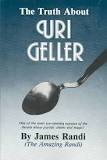At my last blog - which I discontinued and took down because my thoughts
about God were evolving and I was slowly moving in a different direction - I
posted as recently as 2011 an apology of sorts for my pantheistic belief.
The truth is, that stance was the result of over a quarter century of
absorbing free thought and rationalistic writings. I was never able to fully
transition to Atheism for one simple reason: I could never shake my deepest
impression that the Cosmos needed an explanation beyond being a brute
fact.
That impression would never let me go. At the same time, I perceived the
atheist worldview as extremely negative and spending much time saying a
lot about little. But as much as Atheism has to say, it does not offer a
satisfying explanation for existence - why there is something (and at that, an
orderly something) rather than nothing.
So in my post Why I Am A Pantheist, I find the statement:
Mine is a reason-driven religious philosophy, not faith
driven.
I look back at that now and think, "nice try." But I had put lots of faith
in my feeble ability to understand. And I put loads of faith in something else
I wrote then:
For me, the scientific method is the true theology or study of
God. And with the embracing of the scientific method comes the humbling
confession that we don't know everything, and that all our scientific "facts"
are provisional facts. The more the universe is studied, the more secrets she
yields, and the possibility that certain facts may need to be revised frequently
becomes a reality. Still - despite its incompleteness - the scientific method is
the best handle on reality we have.
If I could live as long as the fabled Methuselah, what changes
I could behold in the advance of scientific knowledge! But as for whether the
scientific method is the best handle on reality I have, that could only be so if
the physical universe is all there is. That is a presupposition that may or may
not be true. It was more a matter of faith than reason that I settled on that
proposition. I was in denial about my deeper impressions, and that closed doors
for me, philosophically speaking.
At one point I touched on what is called the Hiddenness of
God. I touched on the various gods that humanity has worshipped down through the
centuries, writing:
That not one of these imagined
deities throughout all the millennia of human history has bothered to reside
among and directly communicate with all his creatures and
forever set the record straight seems to me - if a not a proof, then at least -
an indication that we are dealing with
non-entitites.
Right
I was that isn't proof. But it was a bit bold of me to suggest that because the
gods did not come down to make themselves available to our senses, they were
non-entities. It doesn't necessarily follow just because I thought it
should.
More
troubling to me is idea that the God of the monotheists might have made him/her
self available to our senses - that is, if we allow for the sensus divinitatis.
I do so now allow, but at the time, in keeping with my strict adherence to the
scientific method, I ruled that out from the
start.
I
also made (or rather I should say, parroted) this bold
proclamation:
If there is a creator "God" it must the laws of
physics that organize the raw elements into this wonderful cosmos. This ability
of the elements to self-organize and display apparent design is the divine spark
or Logos. It is that from which we came and to which we must eventually
return.
No wonder the Atheist
spokesperson Richard Dawkins says Pantheism is "sexed-up" Atheism! I was trying
to have my cake and eat it too. I wanted to hold on to "God" and at the same
time let go.
Why must it be the case that God is a
metaphor for the laws of physics? There I was face-to-face with another alleged
brute fact. The Laws of Physics gave us the Cosmos. Period.
But didn't I arrive at that position because I ruled
out the supranatural to begin with? Looking back, I think it was an article of
faith of sorts that the natural is all there is. My guide wasn't so much reason
as faith - faith that a finite mind could grasp the
infinite.
I ended my Pantheist
statement:
I am a pantheist because, as a part of nature's intelligence,
I stand together with my brothers and sisters in awe of the greatest
intelligence, which is the well ordered Cosmos as a
whole.
Did that answer satisfy me then? I think not. It
always made me uncomfortable. It was where I stood at the time, but I didn't
stand steadily.
Before I embraced Pantheism I had been a Deist. I was looking for a
way to reconcile my feelings about creation with the hard facts of science. A
distant and detached God did not do that for me. A metaphorical God, sexed up
atheism, did not do it. I am returning to my earliest belief - that there is an
ultimate reality, or as C. S. Lewis put it in telling of his turning from
Atheism to Theism, "I gave in, and admitted that God was God." I had been in
rebellion against my deepest intuitions for many years, but now I'm returning.
I'm returning to peace of mind and heart.

















